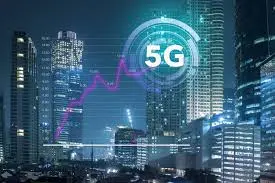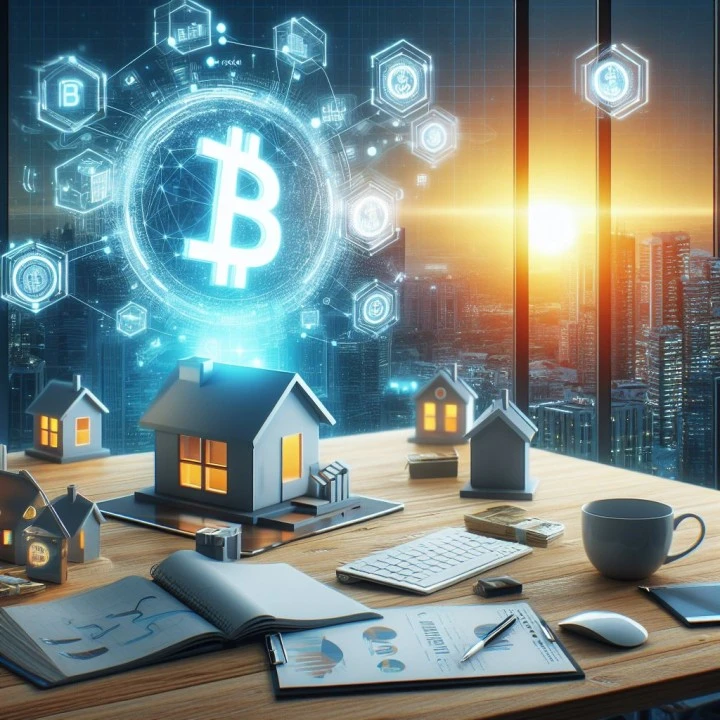In the era of rapid technological advancement, 5G technology stands out as a transformative force, promising to revolutionize various sectors, including smart cities and real estate development. As cities embrace the potential of 5G networks, the landscape of urban living and property markets is set to undergo significant changes. This article explores the profound impact of 5G technology on smart cities and real estate development, examining its implications, opportunities, challenges, and future prospects.
Contents
1. Understanding 5G Technology
Before delving into its impact, it’s essential to grasp what 5G technology entails and why it’s considered revolutionary.
What is 5G?
5G, short for fifth-generation wireless technology, represents the latest evolution in mobile communication standards. It promises significantly faster data speeds, lower latency, and increased network capacity compared to its predecessors (4G LTE and earlier). These enhancements are expected to support a vast array of new applications and services, transforming industries and urban environments.
Key Features of 5G Technology
High-Speed Connectivity: 5G networks offer peak speeds potentially reaching up to 10 Gbps, enabling faster downloads, seamless streaming, and real-time data processing.
Low Latency: With latency reduced to as low as 1 millisecond, 5G enables near-instantaneous communication between devices. This is crucial for applications requiring real-time responsiveness, such as autonomous vehicles and remote surgeries.
Massive IoT Connectivity: 5G networks can support a massive number of connected devices simultaneously, paving the way for the Internet of Things (IoT) to flourish on an unprecedented scale.
2. Impact of 5G on Smart Cities
5G technology holds immense promise for transforming urban landscapes into smarter, more connected environments. Here’s how 5G is set to impact smart cities:
Enhanced Connectivity and Infrastructure
5G networks will provide cities with robust connectivity infrastructure capable of supporting a myriad of smart devices and sensors. This infrastructure backbone is essential for deploying smart city solutions, such as smart street lighting, traffic management systems, and environmental monitoring.
IoT and Smart Devices
5G’s low latency and high capacity will accelerate the deployment and effectiveness of IoT devices in smart cities. From smart meters that monitor energy usage in real-time to connected healthcare devices that enable remote patient monitoring, 5G will enable a proliferation of IoT applications that enhance urban living.
Smart Transportation
5G technology will revolutionize transportation systems within smart cities. Autonomous vehicles (AVs) rely on ultra-reliable and low-latency communication (URLLC) enabled by 5G networks to navigate safely and efficiently. Additionally, 5G-powered vehicle-to-everything (V2X) communication will improve traffic management, reduce congestion, and enhance road safety.
Case Study: Barcelona’s 5G Strategy
Barcelona, known for its commitment to becoming a smart city, has embraced 5G technology to enhance urban mobility, sustainability, and citizen services. The city has launched pilot projects using 5G-enabled IoT sensors to monitor air quality, optimize waste management, and improve public transport efficiency. Barcelona’s 5G strategy demonstrates how cities can leverage advanced telecommunications infrastructure to address urban challenges and improve quality of life.
3. Impact of 5G on Real Estate Development
The integration of 5G technology is also poised to reshape the real estate sector, influencing property markets, development strategies, and tenant expectations. Here are the key ways in which 5G is impacting real estate development:
Demand for Connectivity and Smart Buildings
With 5G, tenants and property developers alike will prioritize buildings equipped with state-of-the-art telecommunications infrastructure. Smart buildings that leverage 5G technology to offer ultra-fast internet speeds, seamless connectivity, and integrated IoT systems will appeal to tech-savvy tenants and businesses seeking efficient and sustainable workspaces.
Flexible Work Environments
The proliferation of remote work and flexible work arrangements accelerated by the COVID-19 pandemic has amplified the demand for 5G-enabled real estate. Properties equipped with robust 5G connectivity can support remote work seamlessly, facilitating video conferencing, cloud computing, and collaborative digital tools. As a result, real estate developers are increasingly focusing on integrating 5G infrastructure into commercial office spaces and mixed-use developments.
Augmented Reality and Virtual Reality
5G’s high-speed connectivity and low latency are poised to unlock the full potential of augmented reality (AR) and virtual reality (VR) in real estate marketing and property visualization. Real estate developers can use AR and VR technologies powered by 5G to offer immersive property tours, virtual staging, and interactive floor plans to prospective buyers and tenants. This enhanced visualization capability can accelerate decision-making processes and drive property sales.
Case Study: The Edge in Amsterdam
The Edge, a smart office building in Amsterdam, exemplifies the integration of 5G technology into real estate development. The building features advanced IoT sensors, energy-efficient systems, and a robust telecommunications infrastructure supported by 5G networks. Employees benefit from seamless connectivity and innovative workplace solutions, enhancing productivity and satisfaction.
4. Challenges and Considerations
While 5G technology offers transformative benefits for smart cities and real estate development, several challenges and considerations must be addressed:
Infrastructure Costs
Deploying 5G infrastructure requires significant investment in upgrading telecommunications networks, installing small cell antennas, and ensuring comprehensive coverage. Real estate developers and city planners must collaborate with telecom operators and government agencies to overcome financial barriers and accelerate deployment.
Regulatory and Planning Frameworks
Navigating regulatory frameworks and obtaining permits for 5G infrastructure deployment can be complex and time-consuming. Cities and real estate developers must work closely with regulatory authorities to streamline approval processes and ensure compliance with local regulations, zoning laws, and environmental standards.
Privacy and Security Concerns
5G networks raise concerns about data privacy, cybersecurity, and potential vulnerabilities. As smart cities and real estate developments become more interconnected, safeguarding sensitive data and protecting against cyber threats becomes paramount. Implementing robust encryption protocols, data anonymization techniques, and cybersecurity measures is essential to mitigate risks and build trust among stakeholders.
Digital Inclusion and Accessibility
Ensuring equitable access to 5G technology is crucial for promoting digital inclusion and bridging the digital divide. Cities and real estate developers should prioritize deploying 5G infrastructure in underserved communities and implementing initiatives to enhance digital literacy and accessibility for all residents.
5. Future Prospects of 5G in Smart Cities and Real Estate
The future of 5G in smart cities and real estate development is promising, with ongoing advancements and innovations poised to further accelerate digital transformation. Here are some key trends and developments to watch:
5G-Enabled Smart Grids
5G technology can optimize energy distribution and consumption through smart grids, enhancing energy efficiency and sustainability in smart cities. Real-time data analytics and IoT sensors powered by 5G networks enable predictive maintenance, demand response programs, and renewable energy integration.
5G and Edge Computing
Edge computing, combined with 5G technology, brings computing power closer to users and devices, reducing latency and enhancing real-time processing capabilities. Edge computing enables faster data analysis, supports AI applications, and facilitates IoT deployments in smart cities and real estate environments.
5G-Connected Autonomous Vehicles (AVs)
The deployment of 5G networks will accelerate the adoption of autonomous vehicles (AVs) in smart cities, revolutionizing urban mobility and transportation systems. AVs rely on high-speed and low-latency communication enabled by 5G networks to navigate safely, communicate with infrastructure, and optimize traffic flow.
Case Study: Singapore’s 5G Roadmap
Singapore has developed a comprehensive 5G roadmap to leverage the technology’s potential for smart city initiatives. The city-state aims to deploy nationwide 5G networks by 2025, focusing on enhancing urban mobility, sustainability, and citizen services. Singapore’s 5G roadmap illustrates the strategic integration of advanced telecommunications infrastructure to support smart city development.
5G technology represents a game-changer for smart cities and real estate development, offering unprecedented opportunities to enhance connectivity, efficiency, and sustainability. From enabling IoT deployments and smart transportation systems to transforming real estate markets and tenant expectations, 5G is reshaping urban landscapes and driving digital transformation.
While challenges such as infrastructure costs, regulatory hurdles, and cybersecurity risks must be addressed, the potential of 5G to create smarter, more resilient cities and innovative real estate developments is immense. By embracing 5G technology and adopting forward-thinking strategies, cities, real estate developers, and stakeholders can capitalize on its transformative power and pave the way for a more connected and sustainable future.


